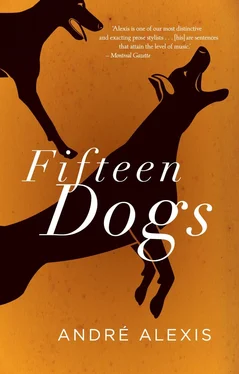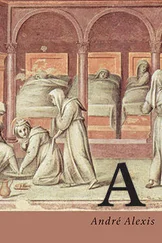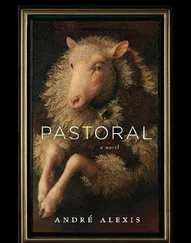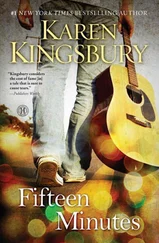During his attack — which he suddenly recalled with a vividness that was painful — he had assumed that the darkness he was falling into would be endless. He had given some thought to death in the time he’d been free and he had assumed that his death had come. This whitish room seemed to be proof he was still alive and, unexpectedly, he was disappointed. What was the point of living on after what he’d been through?
Wishing to know where he was, Majnoun raised his head higher. He tried to call out, but his voice was low and faint and it was painful to bark. Still, he barked as carefully as he could.
Behind him there came the thud of steps.
— He’s awake, a voice spoke.
And the face of a human male eclipsed the room.
— How you feeling? the man asked.
The face of a human female jostled the man’s face out of Majnoun’s field of vision.
— You’re so lucky! Aren’t you lucky! Who’s the lucky boy, eh? Who’s the lucky boy?
— I don’t think he’ll be able to get up for quite a while, said the man. I wonder if he’s hungry.
Hungry was a word Majnoun knew well. Using his own language, he clicked, whined and weakly barked out the words that meant he was indeed hungry.
— I know you’re in pain, boy. Try not to get excited, the woman said.
Then, to the man
— I think he’s too weak to eat.
— You might be right, said the man, but let’s see.
The man left the room and returned with a plate of white rice and chopped chicken livers. He put the plate down in front of Majnoun (it smelled divine!), unclasped the plastic cone, and watched as Majnoun gingerly moved closer to the plate and — without sitting up — took in a mouthful of food with a sidewise swipe of his tongue.
— I guess I was wrong, said the woman. He is hungry.
— Why don’t you name him?
— You think we should keep him?
— Why not? Once he gets better he can keep you company during the day.
— Okay. Why don’t we call him Lord Jim?
— You want to name him after the world’s most boring book?
— If I wanted to do that, I’d call him Golden Bowl.
Listening to the noise the humans made, Majnoun was reminded of how unpredictably consequential their sounds were. When he’d lived with his family, the humans would make any number of sounds, none of which had anything at all to do with him. Then, from out of the fog of inconsequential noise, something meaningful would come: his name would be called, for instance, and a bowl of food that he had left for later would be taken up or a doorbell would sound, someone would shout, and he, clearly the only one who cared about these sporadic invasions of their territory, would have to bark at the intruder or jump up on it to make certain it was submissive and no threat to any of them.
As he ate his rice and chicken livers, Majnoun paid attention to the humans, ready to eat faster if they reached down for the plate.
— What a good eater! said the woman. What a good dog!
Then, exhausted, Majnoun lay back in the wicker basket. He allowed the man to rub him with foul-smelling goo and refasten the cone. He was asleep by the time they left him alone.
+
It was six months before Majnoun could stand up for more than a few minutes at a time. Even then, he could not use the back leg whose tendons had been most damaged. For a long time, he was essentially three-legged. Also, it was humiliating to be unable to shit and piss outside. The humans made it even worse by putting underpants on him. They changed him regularly, but not always as quickly as he would have liked.
In the months it took him to recover, he had little to do but lie in his bed and think about life: his life, life in general. It pained him to do this, because his thoughts inevitably returned to the night of his betrayal. He had been betrayed by the dog with the crumpled face. He had spoken his mind and heart, struggling to express himself out of a sense of fraternity. In return, the crumpled-face dog had been among those who’d tried to kill him. And yet, it sometimes seemed to Majnoun that the others had been right to attack him. He had drifted so far from his instincts, it was not clear — even to himself — that he deserved to live as a dog.
For months, the only thing that distracted him from these sometimes painful thoughts were the humans. They fascinated and frustrated him in equal measure. What, if he were called to give an account of humans, would he say about them? Where would he begin? How to define their smells, for instance? Complex: foods and sweat interrupted by unplaceable odours. They generally smelled of unusual things, but the human smell he liked best was when they were mating. It was sharp and true and comforting, so that on some nights, after they’d moved his basket into their bedroom, he slept more peacefully, the smell of their copulating acting as a kind of tranquilizer.
Then, too, he gradually learned more about their language, moving beyond its rudiments. To begin with, he took in the subtleties of tone. For instance, one would speak to the other in a rising voice and then you could feel the expectation until the one who’d been addressed spoke back. The tone seemed to matter more than the words themselves. And it was always a little odd when they used the rising tone with him, as if waiting for a rejoinder, as if they expected him to understand.
— Are you hungry, Jim?
— Want to go outside, Jim?
— Is Jimmy cold? Are you cold, Lord Jim?
In fact, Majnoun’s fascination with tone of voice is what led to his first serious contretemps with the woman. He spent most of his time with the woman. She seemed the more interested in his company, moving his basket from the bedroom to a room with a large desk. She’d spend hours at the desk, getting up only to stretch or to speak to him or to bring a cup from the kitchen. One day, she rose from the desk, stretched, wandered to his basket, scratched his head and said
— Are you hungry, Jim? Would you like a treat?
Majnoun thought about it, then said
— Yes.
Though the sound yes was difficult for him to produce, he had been practising it for himself, along with the sound no and any number of other significant words. He had also practised nodding, to indicate assent, and shaking his head from left to right to indicate dissent. When the woman asked if he wanted a treat, he was not certain which was more effective: the nod of assent or the spoken ‘yes.’ For a few moments after saying ‘yes,’ he was still not certain, because the woman was immobile, staring at him. Confused by her reaction, Majnoun looked her in the eyes, nodded and then said again
— Yes.
The woman began breathing quickly, then fell to the floor. She did not move for several minutes. Unsure what was expected of him — he had never encountered this sudden human immobility — Majnoun lowered his head, licked the fur on his paw and waited to see what would happen. After a while, the woman stirred, mumbling to herself. Then she got up. Perhaps, thought Majnoun, she’s unsure if she understood me right. He looked up at her, nodded and said
— Treat.
This time, she cried out and ran from the room in terror. It occurred to Majnoun that what he had taken for straightforward — the rising tone, the appropriate response — was a more complicated transaction than he’d surmised. Certainly, when the man had said the word yes or the word treat , the woman had not run from him . Perhaps, he thought, there was some subtle, accompanying sound that he’d missed: a click of the tongue, a whine, a small growl. He could not recall having heard the man make such sounds. At most, the man put an arm around her shoulder when speaking. Perhaps, then, he ought to have touched her before saying ‘yes’?
Читать дальше












